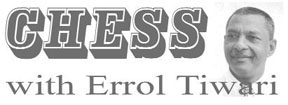The European Team Chess Championships remain the world’s third most pre-eminent team tournament. It is surpassed in elegance only by the World Chess Federation’s extravaganza, the grand two-year-apart Chess Olympiad and the World Team Championships. At this year’s European Championships, 36 men’s and 30 women’ teams contested the biennial tournament. Alternately, at  the 2014 Olympiad, 172 nations participated in an exhilarating display of prominent chess encounters. Each nation chooses its finest players to be their representatives. The separate tournaments, however, have their own merits. The world chess champions and several top ten players, have their origins in Europe. With reference to the world champions, the notable exceptions who are not Europeans, are Capablanca (Cuba), Fischer (USA) and Anand (India). It stands to reason therefore that the European Championships are equal in rigour to the mighty Olympiad and all other tournaments which are contested globally.
the 2014 Olympiad, 172 nations participated in an exhilarating display of prominent chess encounters. Each nation chooses its finest players to be their representatives. The separate tournaments, however, have their own merits. The world chess champions and several top ten players, have their origins in Europe. With reference to the world champions, the notable exceptions who are not Europeans, are Capablanca (Cuba), Fischer (USA) and Anand (India). It stands to reason therefore that the European Championships are equal in rigour to the mighty Olympiad and all other tournaments which are contested globally.
Team Russia was ahead of the contenders vying for exemplary honours at the 2015 European Champion-ships, which ends today in Reykjavik, Iceland. Russia has had an extraordinary spate of victories dating back to when it competed as the Soviet Union in 1957, when the tournament started.
The Soviets won nine times, which is startling since the Championships were held every four years in the beginning then three and now two years apart. Russia, by

